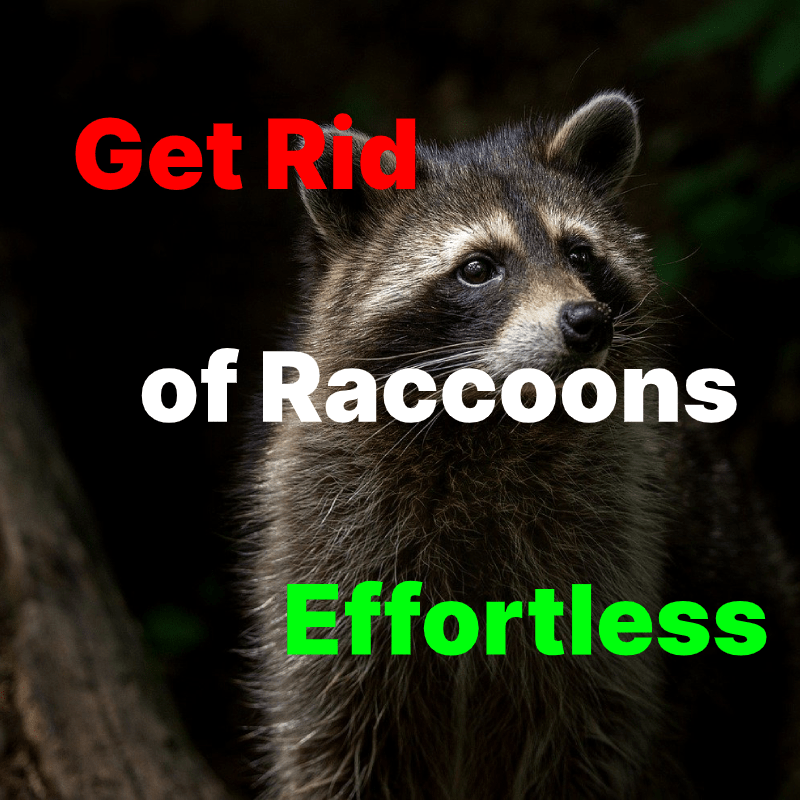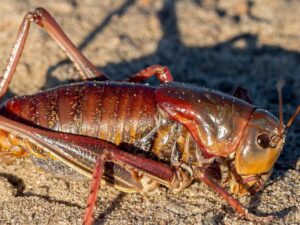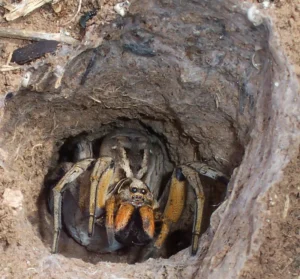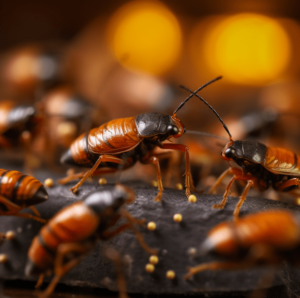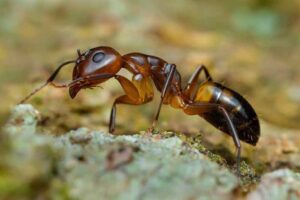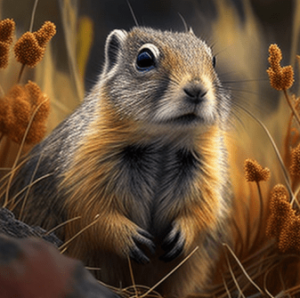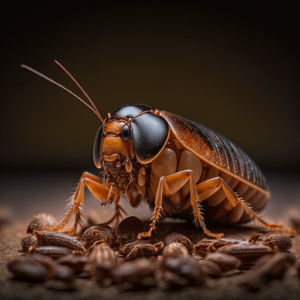Raccoons are a major nuisance for homeowners across the country in both urban and rural areas. This small but intelligent and dexterous animal can cause untold suffering by trashing your compound, stealing food, and damaging vegetable gardens. To make it worse, raccoons are disease carriers and can cause rabies, infectious canine hepatitis, pseudorabies, canine distemper, and raccoon parvoviral enteritis.
This is why you need to learn how to get rid of raccoons on your property. This post explores different tactics for raccoon removal from sprays, traps, spikes, deterrents, home remedies, among others. Read on to learn more.
|
Editor’s Picks |
Brand |
|---|---|
|
Most Effective |
|
|
Runner Up |
|
|
Newest |
|
|
Natural |
No products found.

Most Effective: Orbit 62100 Yard Enforcer Motion-Activated Sprinkler
If you want to get rid of raccoons completely, you need a solution that works round-the-clock. The Orbit 62100 Yard Enforcer Motion-Activated Sprinkler does exactly that and more. The motion-activated sprinkler has both day and night activation modes. It is one of the most humane ways to get rid of raccoons and other small animals from your yard. You can use it for plants, yards, and gardens without any risk to your family. The intelligent sensing technology can differentiate between tree and animal movements. The system comes with three activation modes; day only, night only, or 24-hour protection to suit different pest deterrence. It is simple to set up with the spike going into the turf to hold the Yard Enforcer firmly. When working for a full circle, this sprinkler covers 3,840 square feet. It is an energy-efficient raccoon removal option with the 4 AA alkaline batteries giving you 7,500 activation cycles.

Runner Up: PREDATORGUARD Solar Powered Predator Deterrent Light
Raccoons mostly cause havoc at night by trashing the compound and doing all other kinds of damage. To deter them from causing such damage, you need a solution that works at night. The PREDATORGUARD Solar Powered Predator Deterrent Light is the perfect choice as it scares nocturnal animals such as raccoons, squirrels, skunks, and others. It is the best outdoor repellent against raccoons and is ideal for protecting orchards, chicken coops, trash bins, gardens, property, campsites, vineyards, or ponds. This bestselling predator deterrent light is made of the toughest Industrial Components to withstand outdoor use. It features a Solar LED Unit that automatically charges itself and turns itself on at night and off in daylight. The low-maintenance deterrent light is simple to set up, and once you do this, you don’t need to check it again. It works automatically to keep raccoons away from your property through an alternating flashing pattern. The unit emits a powerful flash of light via twin red LED lights. Raccoons only visit areas where they are safe, and this light will scare them off. For the best results, set the Predator Guard lights 1 to 8 feet above the ground. You can mount the light on a post, fence, or exterior of a wall near areas where raccoons visit.

Newest: Electronic Ultrasonic Pest Animal Repeller
Raccoons are hard animals to catch or trap. In most cases, you want to find the best natural way to get rid of these irritating animals. The Electronic Ultrasonic Pest Animal Repeller ranks as one of the best ways to get rid of raccoons for several reasons. For a start, this annoyance-based raccoon repellent is eco-friendly and doesn’t lead to any harm to the animals. The repellant works through an adjustable Infrared Motion Sensor and a Sound Frequency of 15kHz-18kHzwith a range up to 5, 500 Square Feet. The sensor can repel pests and animals, including rats, birds, squirrels, ducks, raccoons, deer, skunk, geese, rabbit, and mice. It works by scaring away the small animals through three working modes; motion sensor, constant, and continuous sweep. It has three operational modes of Day, Night, or 24 hours. When setting the ultrasonic frequency, you can search for the ideal frequency using the Sonic alarm volume control. This Electronic Ultrasonic Pest Animal Repeller is weather-resistant and maintenance-free. You can use it over a long time to continuously keep your property free of raccoons. It can work for use for your yard, rooftops, garden, garage, basement, campsites, or the balcony. If you want a hassle-free way to remove raccoons from your property, this ultrasonic repellent is the way to go. It is humane and non-toxic, making it safe for use when you have kids and pets around.

Best Natural: Rodent Sheriff Pest Control
The Rodent Sheriff Pest Control is a superb natural way to get rid of raccoons on any property. The raccoon deterrent consists of Ultra-Pure Peppermint Spray and works to repel mice, raccoons, roaches, and other small pests. One of the most significant advantages of the product is the fact that you can use it anywhere on the property as it is safe for both kids and pets. The spray package comes with two 8 ounce bottles of all-natural peppermint power which you can use for over 2,000 sprays. To get rid of raccoons, spray in areas where they are most likely to visit, including Garages, trash cans, basements, kitchens, attics, and sheds. The peppermint spray irritates rodents and keeps them away from your property. If you want a natural way to keep your home free of raccoons, this peppermint spray is your first choice.
Home Remedies for Removing Raccoons
Some of the most effective home remedies for getting rid of raccoons include:
- Ammonia
- Mothballs
- Predator Urine
Do-It-Yourself Solutions and Traps
Here’s how to get rid of raccoons using the above homemade solutions:
Ammonia
Raccoons have a keen sense of smell, and that’s how they can find food quickly on your property. You can use this strength against them by creating a DIY homemade raccoon removal solution using ammonia.
The pungent smell of ammonia will deter these small animals from your compound. If you know the location of their nests, place ammonia-soaked rags near the entrances or spray ammonia anywhere you have spotted these pests. You can also sprinkle the ammonia solution on your trash cans.
Mothballs
Mothballs work well against most small animals, including rodents which hate the smell. If you suspect you have a raccoon in the attic, you should place mothballs there and in any other crawl places. Don’t leave the mothballs in place for too long as the smell can seep into the house.
What Kind Of Spray Will Help?
Cayenne Pepper Spray is one of the most effective tactics to get rid of raccoons. This natural raccoon deterrent is non-toxic hence safe for use on your property and you can easily make it at home.
- Get a small canister of cayenne pepper, hot sauce, and a gallon of water.
- Mix the three to create the perfect spray to get rid of raccoons on your property.
- Spray the solution on your garden, yard, garbage bins, around bushes and anywhere else you have spotted raccoons.
Interesting Facts About Raccoons
- Christopher Columbus was the first person to write about the species.
- They place food in water before they start to eat it. This increases the sense of touch to make them aware of what they’re about to eat.
- A nursery or gaze refers to a group of raccoons
- Raccoons are solitary and nocturnal creatures
- Raccoons are excellent swimmers and climbers.
- They produce different sounds. Raccoon noises\raccoon sounds can include hissing, purring, whistling, and growling.
- They’re named for their unique hands. The word ‘raccoon’ comes from Powhatan word aroughcun, meaning an animal that scratch with its hands.
- Six raccoon species are native to North and South America
- Their black fur masks make them see more clearly by absorbing incoming light, reducing glare.
- Calvin Coolidge kept a raccoon as a pet in the Whitehouse
How to Prevent Raccoons
Raccoons are highly intelligent animals and keeping them away from your home takes a lot of skill. Some ideas to prevent them from coming include:
- Securing your garbage and trash cans with a secure lid
- Avoid leaving pet food outdoors and secure your bird feeders.
- Clean up your yard and collect fallen fruits and nuts.
- Fence your garden, compost pile, fish pond, or newly installed turf
- Don’t feed raccoons as this encourages them to keep coming
- Scare the raccoons using motion-sensor lights or sprinklers
- Use raccoon repellants around the bushes, yard, bird feeder and other areas where raccoons live on your property.
FAQ
Raccoons are very cautious and will not come near any place where a predator lurks large. This is why predators’ urine works so well to deter these irritating animals. Urine from wolves, coyotes, bobcats, or mountain lions works well to repel raccoons and you can find it online or local sporting goods stores.
Raccoons are native to North America. They are also present in Canada, Mexico and the northern-most regions of South America. They are found everywhere in the states except southwestern states like Utah, Nevada, and Arizona and areas around the Rocky Mountains.
Raccoons live in tree cavities or burrows and emerge at night to hunt for food in trash cans, gardens, and the woods. They are highly adaptable animals enabling them to live in diverse habitats, from mountainous terrains to large cities.
Raccoons are omnivorous but also opportunistic eaters meaning their environment determines what they eat. Naturally, they eat plants, nuts, crayfish, fruits, berries, frogs, insects, rodents eggs. In cities, they forage for leftover foods in garbage bins and eat whatever they find.
No. raccoons don’t hibernate but they hide in their burrows during the coldest days of winter.
You need to stop attracting them by keeping food sources secure. This includes securing trash cans, putting pet feed indoors and securing the bird feeders. You should also clean up your property, pick any fruits or nuts on the compound. You can also install electronic repellants or spray peppermint or cayenne pepper around the outdoor area.
They prefer sleeping in large holes in attics, crawl spaces, trees, or hollow parts of fallen logs, abandoned cars, barns, and sheds. However, they change dens frequently.

